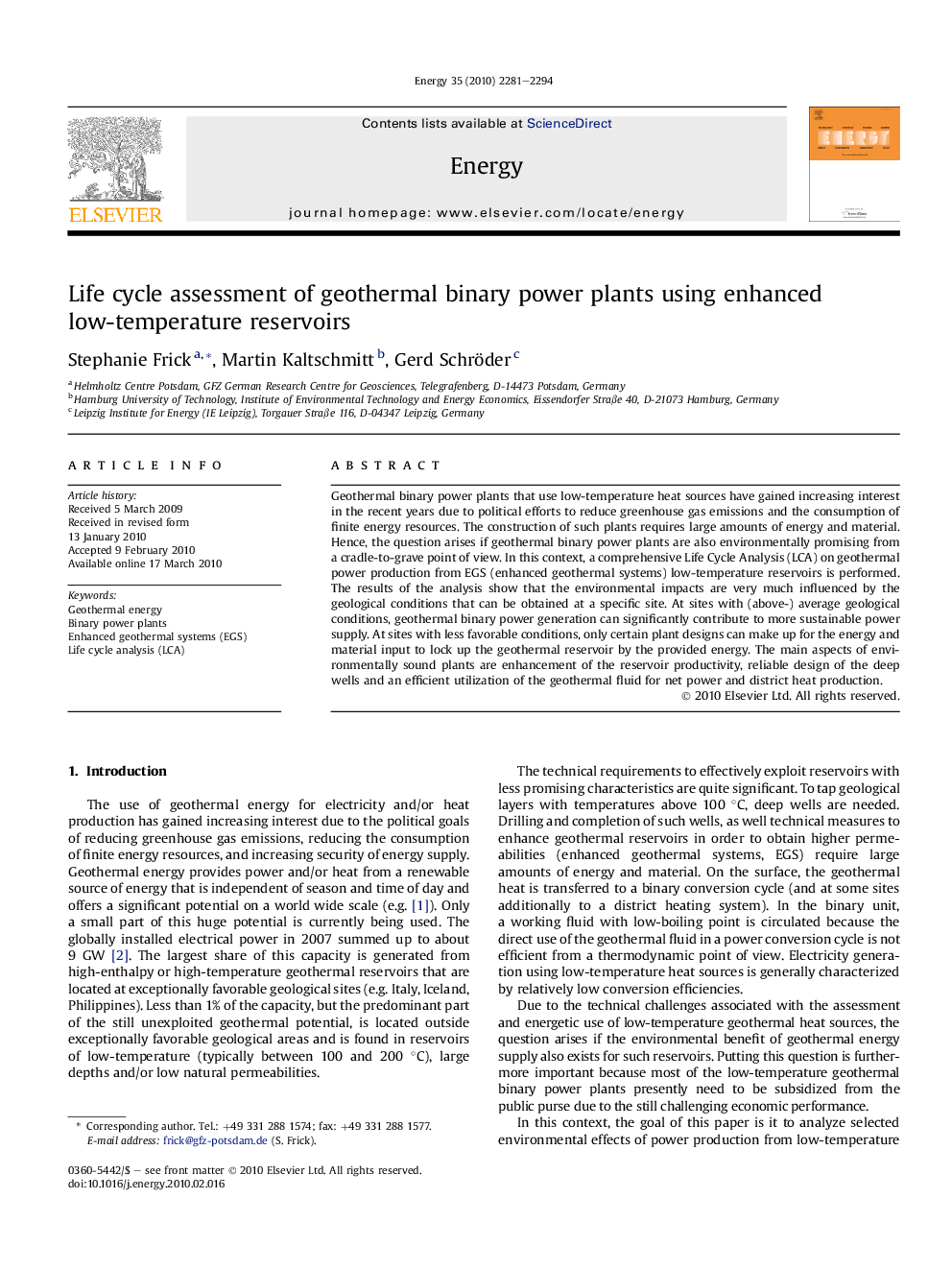| Article ID | Journal | Published Year | Pages | File Type |
|---|---|---|---|---|
| 1735556 | Energy | 2010 | 14 Pages |
Abstract
Geothermal binary power plants that use low-temperature heat sources have gained increasing interest in the recent years due to political efforts to reduce greenhouse gas emissions and the consumption of finite energy resources. The construction of such plants requires large amounts of energy and material. Hence, the question arises if geothermal binary power plants are also environmentally promising from a cradle-to-grave point of view. In this context, a comprehensive Life Cycle Analysis (LCA) on geothermal power production from EGS (enhanced geothermal systems) low-temperature reservoirs is performed. The results of the analysis show that the environmental impacts are very much influenced by the geological conditions that can be obtained at a specific site. At sites with (above-) average geological conditions, geothermal binary power generation can significantly contribute to more sustainable power supply. At sites with less favorable conditions, only certain plant designs can make up for the energy and material input to lock up the geothermal reservoir by the provided energy. The main aspects of environmentally sound plants are enhancement of the reservoir productivity, reliable design of the deep wells and an efficient utilization of the geothermal fluid for net power and district heat production.
Related Topics
Physical Sciences and Engineering
Energy
Energy (General)
Authors
Stephanie Frick, Martin Kaltschmitt, Gerd Schröder,
